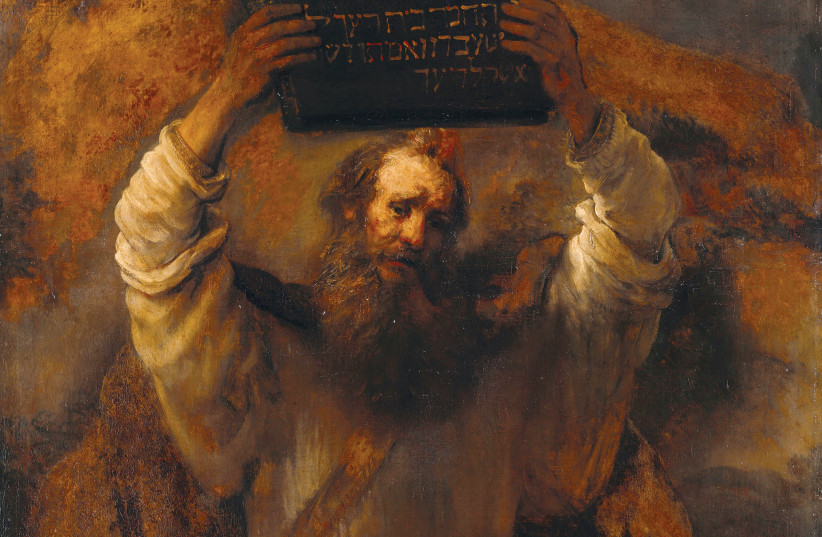Settling every inch of the land in the historic Land of Israel – opinion
Earlier this year, Israelis celebrated the 75th birthday of the State of Israel on land that they once governed for close to a millennium, during the times of the First and Second Temples. It’s hard to miss the irony of celebrating three-quarters of a century when it can be argued that the Jewish people have had a continuous presence in Israel for thousands of years. Eretz Israel, the “Land of Israel” has always been the Jewish people’s historic homeland – in fact, in the Bible, Jews are called Israelites, named after the land from which they stem.
At Zionism’s inception, a debate almost brought the movement down. Joseph Chamberlain, the secretary of state for the Colonies of the British Empire, proposed creating a Jewish State in Uganda, a portion of Africa under British control. The idea had merit since the father of Zionism Theodor Herzl was primarily focused on saving European Jewry from rising antisemitism. The Uganda Scheme, as it became known, would have provided refuge for the Jews of Europe from Europe’s antisemites.
However, it was rejected by early Zionists, and “Eretz Yisrael or bust” became the driving force. Unlike the United States, a nation built on values and ideas, but not centered around a land, the State of Israel is built around a land.
Americans and Israelis have much in common because they share many values, especially those of “Life, Liberty, and the pursuit of happiness.” But Israelis and Americans differ in that while American values can transplanted anywhere on Earth, the Jewish people couldn’t have established a true state anywhere but in the Land of Israel. The Jewish people’s connection to the land is not because it happens to be where we landed when running for our lives, but because it is where we originated thousands of years ago.
Had the Jewish State been established in Argentina, Uganda, or Madagascar, it would have been an artificial state. The Jewish people would’ve been foreigners even in their own country. The Land of Israel is the only true land of the Jewish people.
 Rembrandt’s famous 1659 painting of Moses carrying the 10 Commandments (The Yorck Project) (credit: WIKIPEDIA)
Rembrandt’s famous 1659 painting of Moses carrying the 10 Commandments (The Yorck Project) (credit: WIKIPEDIA)Our people settled back in Israel after their emancipation from Egyptian slavery. They built temples in Israel and were a continuous presence in the land for 3,000 years. The indigenous connection that the Jews have to Israel makes every inch of the land holy to our people, whether today’s Jew is religious, secular, or spiritual.
Others may live on it, but the land will always remain the birthright and property of the Jewish people – and of no other nation. The Jewish connection to the land is not based on who is ruling it, who is living on it, or what is happening there. The connection to the land wasn’t established by the Zionist Congress in 1897, the Balfour Declaration in 1917, or the United Nations vote on the partition plan in 1947. It wasn’t even established by David Ben-Gurion’s Declaration of Independence in 1948. The Land of Israel is the Jewish people’s homeland today, just as much as it was thousands of years ago.
Israel’s borders aren’t established by the State of Israel, the United Nations, or the international community. The land the Jews ruled over in ancient times is the land sacred to the Jewish people today. It’s this sense of sanctity that puts Israel at odds with so many people and nations in the world today.
Jewish connection to the West Bank
A PERFECT example is the area known internationally as the West Bank, called Yehuda Veshomron in Hebrew and Yahuda wa-s-Samara in Arabic – referring precisely to ancient Judea and Samaria – that the world denies belongs to the Jewish people today. Often referred to as “occupied” or “disputed” territories, the area is as much part of the Jewish homeland as any other part of Israel. It is the “heartland” of the Jewish people because most of their history occurred there. To argue that the Jewish people don’t have a valid connection to Judea and Samaria is absurd.
The United Nations’ attempt at compromise – which failed miserably – by splitting the territory and thus robbing the Jewish people of part of their land, was unjust. It is equally unjust to suggest that the only way Israel can remain a legitimate nation among the nations is to excise its people from Judea and Samaria as part of a two-state solution. Peace can never be an outcome of injustice.
There are many Israelis (albeit a minority in the country) and many American Jews too, who feel that it is in Israel’s interests to leave the West Bank to the Palestinians. Yet, even those who maintain it is best for Israel to pull its soldiers and citizens out of Judea and Samaria agree there is no less historical connection to that area than to areas such as Tel Aviv, the Negev, and even Jerusalem.
Zionism originally aimed to resettle the Land of Israel for the Jewish people. It didn’t limit that dream to only certain areas of the land. Before 1948 and the founding of the State, the Yishuv (Jewish residents in what was known as “Ottoman Syria” and later in “British Mandatory Palestine”) settled in all parts of the land, including Judea and Samaria.
Any division between Judea and Samaria and the rest of Israel is artificial and not reflective of history, justice, or truth. The Jewish people are connected to all parts of Eretz Yisrael and have every right to live in and govern every part of Eretz Yisrael.
The writer is a certified interfaith hospice chaplain in Jerusalem and the mayor of Mitzpe Yeriho, Israel. She lives with her husband and six children.





Comments are closed.